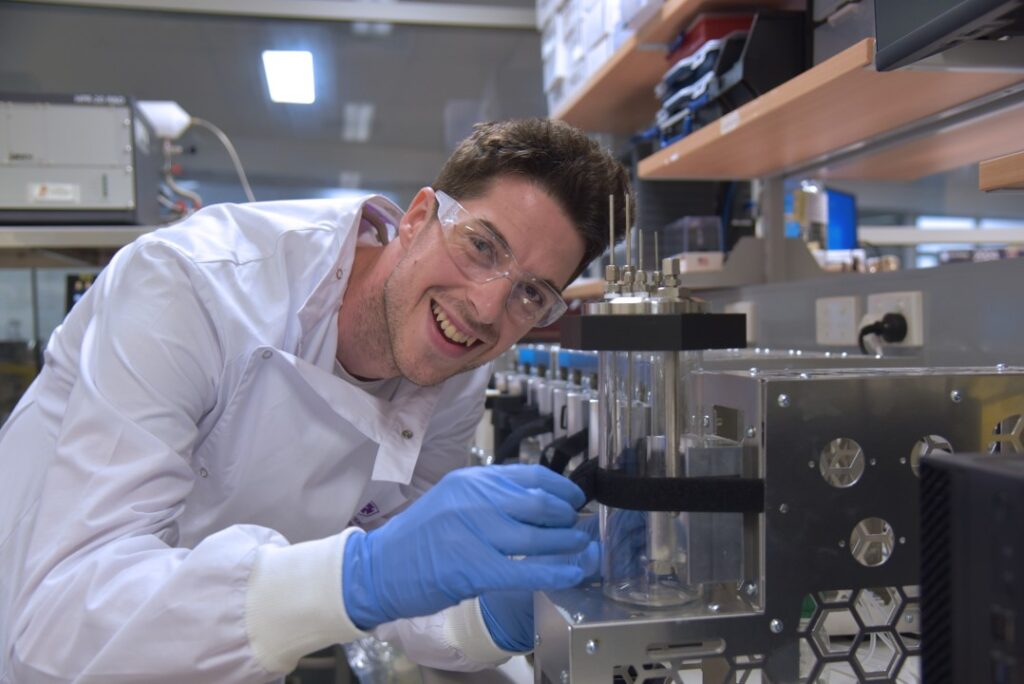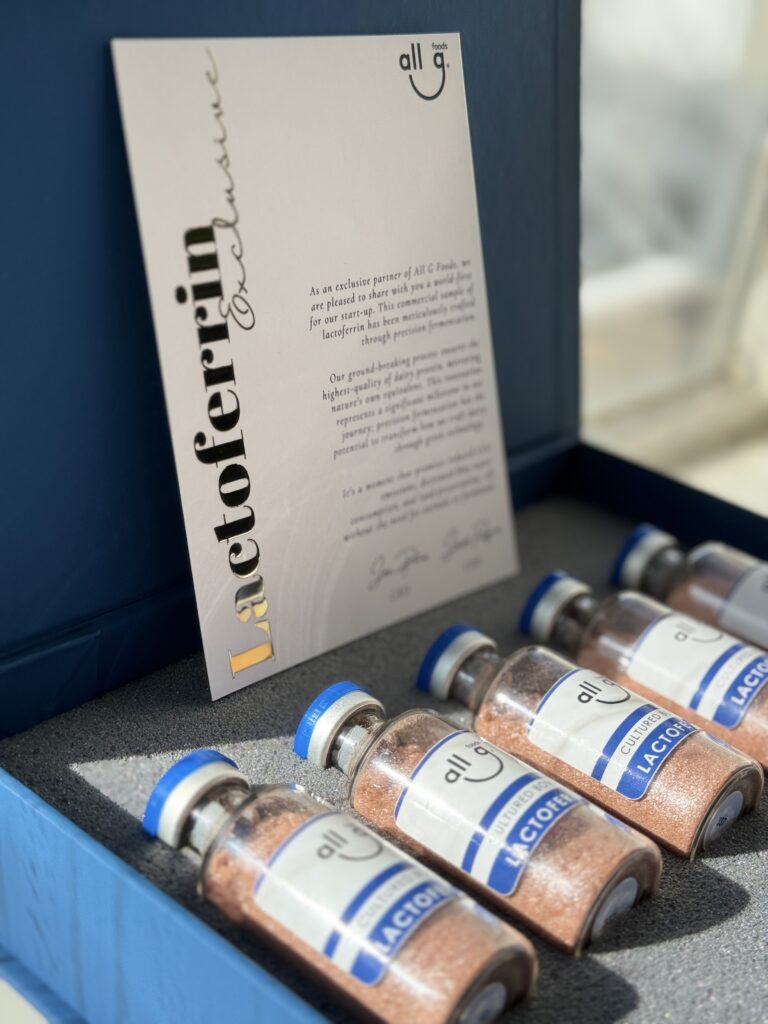
In a government-backed effort, University of Queensland researchers have produced precision-fermented dairy proteins that will now be scaled up by Sydney startup All G.
Powering Australia’s burgeoning precision fermentation sector, University of Queensland’s Food and Beverage Accelerator (FaBA) has landed on the ideal “recipe” for recombinant dairy proteins after months of refinement.
It is now turning to Sydney-based food tech firm All G to scale up the protein, in what is the first commercial technology transfer for FaBA’s Innovative Ingredients Program, which supports the development of next-gen food ingredients.
All G is leveraging the breakthrough to develop a cow-free milk supplement. “Through precision fermentation, we have created proteins for people with specific dietary preferences,” said Esteban Marcellin, a professor at the Australian Institute for Bioengineering and Nanotechnology.
“A key part of the project was to transfer new technologies, such as the new bioprocess, from the lab to a company, and this will speed the path to commercial outcomes for All G.”
How FaBA produces its animal-free dairy proteins

Precision fermentation combines traditional fermentation with the latest biotechnological advances to efficiently produce a compound of interest. In FaBA’s case, this was a dairy protein.
“It’s a bit like brewing beer – except instead of alcohol, we’re producing dairy proteins that can be used in food supplements,” explained Marcellin.
The team inserted a DNA sequence for making dairy proteins into plasmid DNA, which created recombinant DNA that was introduced into microbes. They then underwent fermentation in FaBA’s research bioreactors to produce the proteins, which were then extracted and purified.
“The microbes are doing the work, but they only perform well if you give them the right instructions and conditions,” said Marcellin. “We had to try different ‘recipes’ to ensure we got the pH, oxygen and nutrient levels just right and as close to the real product as possible.”
Aidan Beauglehole, a senior scientific officer at the university, said the custom-built bioreactors enable the careful management of each stage of the process. “We can precisely control oxygen uptake in the system, control pH at exact levels, and we have tested different conditions to ensure optimal growth,” he explained.
“By closely monitoring and adjusting every element of the fermentation, we have demonstrated we can improve growth rates and better control any by-products of the process,” he added.
Transferring the tech from FaBA’s lab-scale bioreactors to All G’s tanks in a manufacturing environment required the team to scale various elements of fermentation to ensure they were well-suited to the larger units.
Government support is critical for precision fermentation

All G is already a leader in the global precision fermentation space, having received regulatory clearance to sell recombinant bovine lactoferrin in China and the US in late 2024.
This is an iron-regulating whey protein found in bovine and human milk, and is revered for its functional health benefits. The problem? Producing it is expensive, resulting in the ingredient being in short supply. While a majority of its stocks are reserved for infant nutrition and supplementation, several precision fermentation companies are targeting the protein for use in functional foods and drinks, protein powders, and sports and elderly nutrition.
All G’s approvals don’t cover infant nutrition yet, as that is a more complex process. But the company is also making recombinant human lactoferrin on a grams per litre scale, which is expected to launch this year. Plus, it’s working on casein, the main protein found in dairy.
“Our phosphorylated casein production is going well and we aim to move to a 1,000-litre scale in the first half of 2025,” founder and CEO Jan Pacas told Green Queen in December.
All G has already been in talks with multiple contract manufacturing facilities to scale up production both in the US and the EU. Its CTO, Guillaume Barbier, believes FaBA’s optimised bioprocess will allow the firm to accelerate the development of its products.
“Working with FaBA has given us a head start in designing a scalable, production-ready process,” he said. “It’s a valuable partnership as we grow and move ahead of the curve with the development of dairy products using new technology that [is] good for people and the planet.”
All G is one of several companies involved in Australia’s precision fermentation space, including Nourish Ingredients, Eden Brew, Daisy Lab, and Cauldron. Experts have labelled government support crucial to the sector’s future. FaBA itself is part of the education department’s Trailblazer Universities Program, benefitting from an A$50 investment, complemented by another A$110M from universities and industry.
Non-profit Cellular Agriculture Australia has called on the government to recognise the tech as a research and infrastructure priority, increase investment into pilot- and commercial-scale fermentation facilities, and boost regulatory resources to advance domestic approval of novel foods.
The post Aussie Govt Programme Teams Up With All G to Scale Up Animal-Free Dairy Proteins appeared first on Green Queen.
This post was originally published on Green Queen.